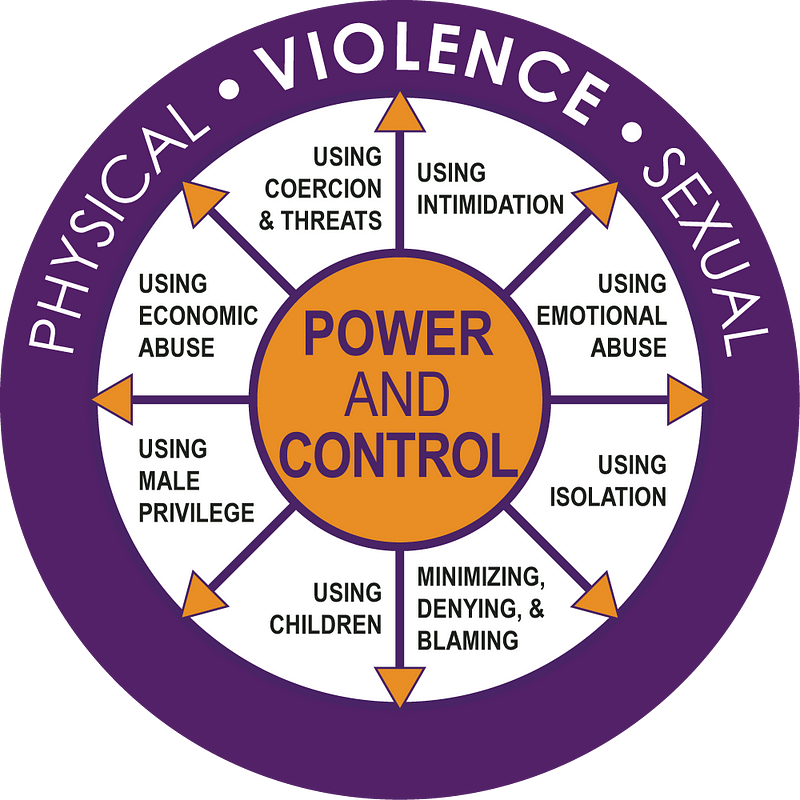
October is National Domestic Violence Awareness Month. The initiative, which was started by the National Coalition Against Domestic Violence in 1981, aims to draw attention the issue of intimate partner violence, especially among young adults. On a college campus, relationships can be extremely easy going: everything is paid for, there are no arguments about who pays which bills, and your only responsibility is to get good grades and succeed as a student. The fact that Hamilton is an entirely residential community makes it even easier to be in a relationship, as your partner likely doesn’t live more than a ten minute walk from you. As a result, it is easy to become deeply involved in a new relationship, allowing it to take up significant amounts of time and energy. Because of the phenomenon of rapid and intense infatuation, it is easy to miss the early signs of relationship abuse. So, in the spirit of spreading awareness of intimate partner violence, I’d like to share a few warning signs of intimate partner abuse.
Control
: An early sign of relationship abuse may be your partner wanting to have excessive amounts of control over your schedule, your social life, or even who you spend time with. You should be able to have a life out of your relationship that can be private from your partner. You’re allowed to spend time away from your partner. Someone that wants to control who you see, where you go, and what you do is not a supportive partner. In addition, this is also a slippery slope; it is easy for this kind of behavior to escalate to controlling the things you put on social media or demanding access to your phone and email.
Irrational jealousy and anger:
An intense reaction to you not texting back right away is not normal. Fear that you’re being unfaithful just because you spend time with other people is not normal. A partner who believes that any moment that you don’t spend with them is a betrayal on your part is overly jealous and entirely irrational.
Emotional manipulation
: Making you feel guilty for dressing a certain way, eating certain foods, or spending time in a certain way is incredibly manipulative. In addition, making threats towards you like “if you don’t do ____, I’ll do _____” is an equally dangerous means of trying to exert control over you. Your partner shouldn’t make you feel like you can’t or aren’t allowed to do certain activities simply because they don’t want you to. And they shouldn’t make you feel guilty if you do engage in these activities.
While these are some of the most important indicators of relationship abuse, it is also important to know how you can help a friend who is in a potentially abusive relationship.
Don’t judge
: You may not under-stand why your friend hasn’t ended this relationship already, and you may never know. It is important to encourage your friend to seek support and leave the relationship. However, for whatever reason this may be an incredibly challenging thing for your friend to do. The best thing is to be supportive and kind. Your friend will make the right decision in the long run, but it may take some time to get there.
Know that relationship abuse can take many forms
: This issue impacts individuals of all races, gender identities, and sexualities. In popular media, it is often portrayed as a conflict between a white male and a white female. However, this is often not the case. Any individual in any type of relationship can experience abuse, no matter the circumstances. So don’t try to gauge the nature of the relationship based on the types of people that make it up. In some ways, this can be dangerous, as it means that indicators of abuse can go overlooked.
If you think you or your friend may be in an abusive relationship, get help. Seek out a trusted adult, or use any of the following resources: Loveisrespect.org is an instant messenger-style hotline that will connect you to someone immediately. You can also call 1–866–331–9474 to speak with a trained LoveIsRespect specialist directly. All calls are confidential and toll-free.
An app called MyPlan is an interactive safety decision aid that can help provide further resources and options for support. This helps survivors navigate a pathway forwards in order to end a relationship safely.
Finally, if you believe you or your friend are in imminent danger, call the domestic violence hotline at 1–800–799–7233. This will connect you with a trained advocate who can provide support and help you decide which steps to take. Campus Safety and the Counseling Center are also available 24 Hours, 7 days a week at 315–859–4000.

















